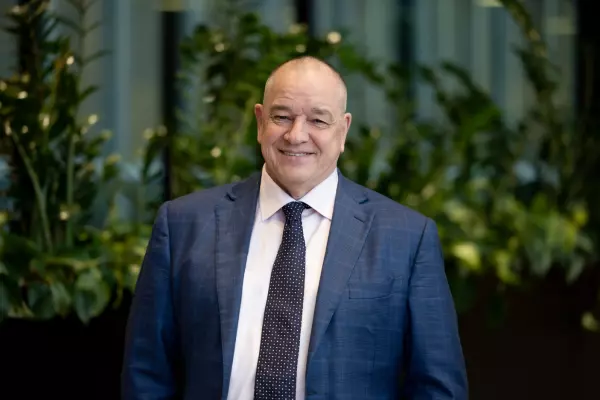BusinessDesk investments editor Frances Cook responds to emails from readers each week, answering questions about money. Below, you will find her expert advice. Send your questions to [email protected].
Hi Frances,
I really enjoy your content, and it’s inspired me to change what I do with my money. I’ve managed to pay off my debt and start a savings account, and I’m learning about investing. Thank you!
The problem is my boyfriend.
He doesn’t get it. He doesn’t understand why I don’t have a credit card any more. He doesn’t understand why I want to start investing. He says it’s just gambling, and I shouldn’t bother.
How do I make him understand? Can I hire you to talk to him about it? I’m serious, I’ll pay for your time.
Thanks,
S.
Hi S,
Wow, a lot to unpack in this one! Thank you very much for the offer to pay me to have a chat with him, but I honestly think it wouldn’t work, never mind whether I’m the right person for that task.
I can understand why you feel frustrated with this situation. You’ve discovered something glorious – the empowering feeling of taking charge of your money and turning your situation around.
I quite vividly remember this stage of the journey. You start taking control of your money and you suddenly realise some of the minimal changes you make have a huge impact.
You feel less stressed. You wonder why you didn’t make these changes earlier. You want to tell everyone around you the good news, of how they could be feeling better without really sacrificing much at all, that the myth of a grim, miserable budget isn’t the reality at all.
And then reality comes crashing in because those around you aren’t all that interested and don’t really appreciate you telling them about it.
Cold reality
My mum used to have a saying when I was a teenager and probably a bossy one at that.
“You don’t get a cow to move forward by pulling on its horns.”
We kind of all know we should be doing something about our money. But we have lots of baggage that comes with the territory, whether that’s from childhood, early career, or our culture.
People feel judged very quickly – that you’re calling them dumb for not knowing something, lazy for not doing something, or unimportant for not earning more.
It doesn’t matter that that isn’t what you said. That’s what they heard.
There are layers of baggage that make money an incredibly sore point for many people and they will read more into what you say than you ever meant. That means it’s a conversation that has to be handled carefully if you want actually to make any progress.
The chat
The first place I start with these conversations is to not talk about the other person at all. Talk about yourself, the changes you’ve made and how they’re making you feel.
Just drop it into the conversation and let the conversation move on when it does naturally.
So, you’ve started an auto payment into your savings. Fantastic. You could say about how it’s going really well and you’re so proud of yourself that you haven’t dipped into the savings account for anything new. You feel more secure, knowing you could handle something unexpected happening to you.
Or you learned something new about investing today and you found it really interesting.
If your boyfriend changes the subject, let him. That’s OK. You’re just including him in your life.
Money discussions are often thick with judgment and that’s exactly what you want to avoid. So, by keeping the conversation about yourself and what you’re doing, you’re reducing much of that from the start.
I think the only possibility of getting others to change is inspiring them through your own example of what is possible and how it helps you live your life.
A direct conversation where you try to convince them to change for you? At best, they’ll do it for a week and then go back to old ways.
But you probably won’t even get that much change.
Lotto question
The next thing I like to do is the Lotto question. What would you want to do if you won Lotto?
It's a bit more fun than squabbling about who ran up the power bill. Taking the money chat out of the here and now takes some of the heat out of it.
It also gives you crucial insight into the other person's values. Whether they talk about travel, buying a house, or helping out family, those are the things they hold most dear.
It's really important that there are no wrong answers to this question.
After that, it's whether or not you can manage a version of it without winning Lotto. I strongly believe some version of any answer is achievable, whether it's now, in five years, or ten years.
None of us save money just because we 'should' or because some financial expert tells us we're naughty if we don't.
We need a goal. Something that feels real, achievable and worth any smaller sacrifice along the way.
The Lotto question helps you figure out what's worth it.
Protect yourself
This journey might take a while. Until you get on the same page, I think it’s important to make sure that you don’t lose the wonderful progress you’re making.
There’s nothing wrong with having separate bank accounts and separate investing accounts.
In our household, we only fully combined finances a few years after we were married. It didn't hurt our relationship, but I'd say it strengthened it by allowing us our independence and reducing the chance of resentment building up.
By the time we made the change to combine finances more, we had quite similar goals, so it made sense.
Until then, we had separate accounts and happily worked towards our separate goals but alongside each other.
If you’re living together, something like a shared bank account can be used for bills like rent, electricity, food and other expenses. You both put in an agreed amount that covers just those expenses.
Then, you have your own separate accounts where you have the freedom to decide how much you want to spend, save and invest.
This takes the pressure off both you and your boyfriend. He doesn’t feel trapped in a savings plan he doesn’t (yet) agree with.
Meanwhile, you don’t feel like you have to give up long-term goals, especially when you’re already seeing wonderful progress towards them.
Giving people the freedom to make their own choices while talking openly about your choices and the good impact they're having on your life can be surprisingly powerful.
Fork in the road
I have another point that I want to say quite carefully. It is simply food for thought and I’m not telling you what to do, one way or another.
Who you choose as your partner in life is very important and it’s certainly very important for your money.
Sorry to be a Debbie downer, but love isn’t enough.
For a relationship to work for the long haul, it’s important that you understand each other's long-term goals and help each other reach them.
This doesn’t mean that you need to agree on everything and have the same tactics – far from it.
In fact, my husband and I had very different ideas about money for a long time. It didn’t hurt our relationship.
But that was also partly because we were very conscious about supporting each other’s goals, even when they were different.
We had separate bank accounts, different tactics and different long-term goals for our money.
But we also knew each other's goals and made sure we never stood in the way of them. We cheered each other on for our different goals and supported each other towards them as much as we could.
As time went on, we’ve learned from each other and our goals have become more aligned and more similar. That does make life easier. But we would still be able to cope if we had different goals.
That’s the important thing about loving the whole person you’re with.
It's a bit of a red flag to me that your boyfriend is telling you you shouldn’t bother with things like investing.
Now, he could be saying this out of love and hoping to save you from a costly mistake. Many people who don’t understand the sharemarket fear it.
While I still don’t love that that’s his response, if it comes from a loving place, I’m more understanding of it.
But if it’s more of an “I’m not interested in this and therefore, neither should you be”, then that’s a big red flag. You don’t have to be interested in the same things, but you should still be able to support each other.
It’s one thing to have a partner that does actively harmful things like getting you into debt or gambling.
Those are huge problems and I would hope most people would get out of that situation.
But even just discouraging you from wanting more, from trying to be better, from reaching for something bigger isn’t great.
Hearing that from someone who you love and whose opinion I assume you value can end up really holding you back.
I’m excited when someone I care about has a big goal. Whether or not they reach it, let’s find out. I’ll do everything I can to support them smashing it.
Money is the No 1 cause of divorce. That’s because it affects the goals you can reach for together and the kind of life you can live.
It can fester resentment or be a spark that sheds light on very different priorities.
So, think about what these comments reveal about the level of support in your relationship.
As I said, you don’t have to be the same person and agree on everything. People can say things we disagree with out of a place of love and kindness.
But you should be in a relationship where you both feel supported to be the best version of yourself.
So, think about how your goals fit together and whether you, overall, feel supported and like you’re growing, even if it’s not in the same direction. Different directions are fine as long as you’re both happy.
Bottom line
In life, we can only control ourselves. This is one of the things therapists will often work on.
We may be in a difficult situation and those difficulties are real, but we can only control ourselves and our reactions to them. We can't force others to do what we want them to do.
So, rather than asking the other person to change (often pointless, anyway), it’s time to ask yourself what you’re going to change.
Are you happy to do the ‘living by example’ tactic? Do you want to simply keep finances separate until you’re on the same page? Or do you want to go your own way?
Only you can answer those questions.
Send questions to [email protected] if you want to be featured in the column. Emails should be about 200 words and we won't publish your name. Unfortunately, Frances is not able to respond to every email received or offer individual financial advice.
Information in this column is general in nature and should not be taken as individual financial advice. Frances Cook and BusinessDesk are not responsible for any loss a reader may suffer.














